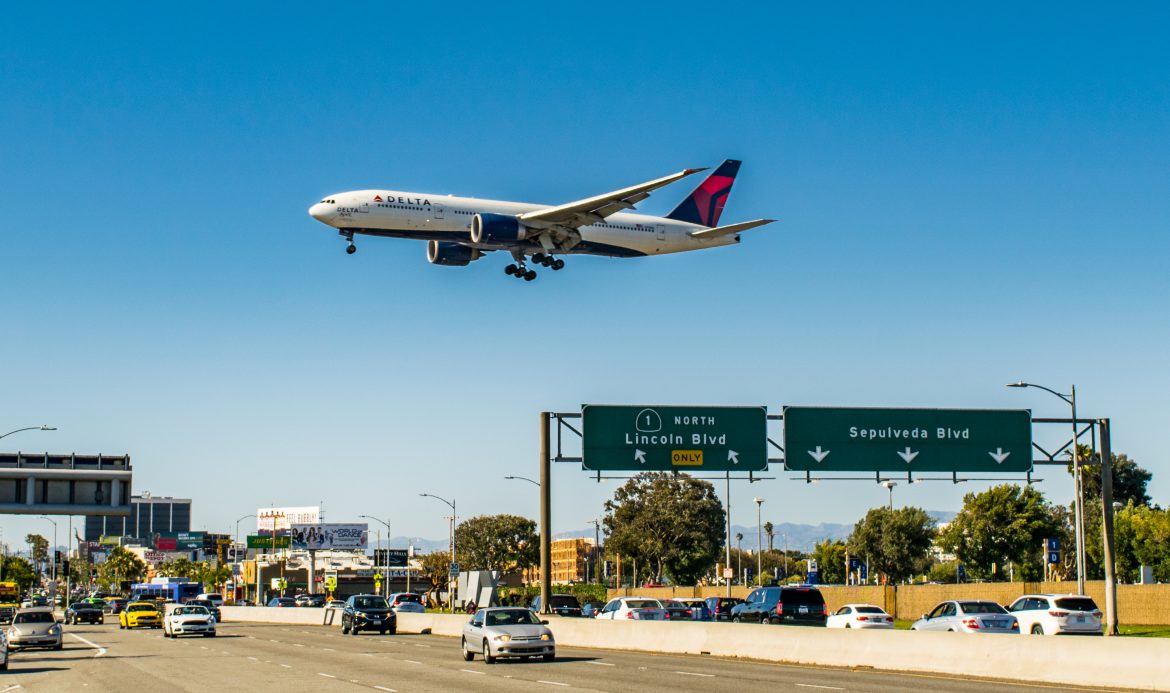Some nations, like Canada, have implemented laws that mandate nationwide travel safety precautions during the COVID-19 pandemic, but the United States has left it up to the airlines. This has created a wild west type travel environment that requires travelers to research exactly what each airline’s policy is. To help you in your travels, we have put together a listing of what each airline is doing (or not doing) to keep travelers safe.
American

American Airlines (Photo: GagliardiPhotography)
American Airlines was one of the later airlines to adopt coronavirus safety protocols, however, it looks like the carrier has gotten a bit better in recent months.
Safety Measures in Place:
~ No change fees for flights booked before July 31
~ Daily airplane disinfecting
~ Some electrostatic spraying of planes
~ Airport ticketing surfaces being disinfected
~ Plexiglas shields at ticketing
~ Team members required to wear face coverings
~ Passengers required to wear face coverings on board (except for infants and very select few elderly and disabled people)
~ Limited food and drink and services to limit contact
What’s missing:
~ The airline has yet to limit seating capacity inside the cabin, despite the fact that social distancing has been proven to be the most effective means of reducing transmission of the coronavirus.
~ While the airline is doing some electrostatic spraying, it needs to implement the measure on all aircraft.
Passport contributor and editor of LatinFlyer.com, Mark Chesnut, flew with American this month. Of his experience, he said, “Our flight was completely full, in other words, don’t plan on getting an empty seat next to you during the pandemic. I know that some carriers are guaranteeing empty middle seats at least through the end of July. In-flight service on our 5.5-hour flight consisted of just one round of nonalcoholic beverages: no snacks, no food, no alcohol, so you must bring whatever you might need for the flight, including sanitizer and wipes, since American doesn’t provide wipes or gel.”
ALASKA
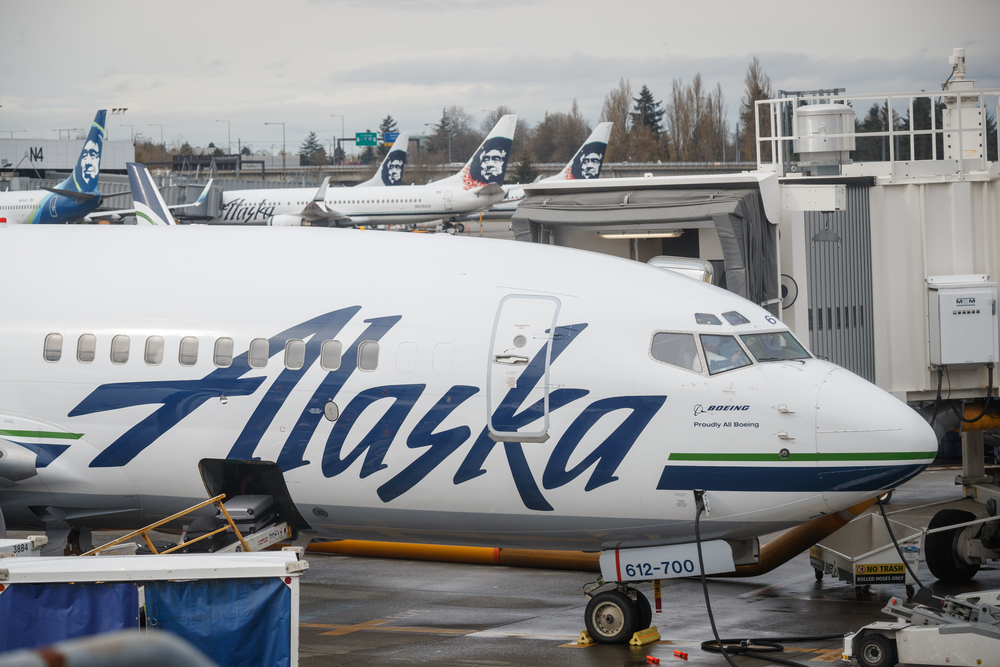
Alaska Airlines (Photo: John Gress Media Inc)
Alaska, the airline that’s technically based in Anchorage, but has its largest hub in Seattle, has committed to safety and sanitation, however, their cleanliness standards are quite vague.
Safety Measures in Place:
~ Face masks required for anyone over 12 (or those with disabilities)
~ Passengers must sign a “health agreement” stating that they don’t feel sick and haven’t been in contact with someone who has tested positive for COVID-19
~ Floor markers for social distancing
~ Blocking “select seats through July and beyond…” But then the website immediately goes on to say that extra space in the cabin isn’t a guarantee
~ Reduced food service to limit contact
~ Electrostatic disinfecting (though how often isn’t stated)
~ High-touch points sanitized between each flight
~ Counters in airports wiped down “at a frequent cadence…”
~ No change fees through July 31
What’s Missing:
~ Alaska needs much more transparency and a better commitment to keeping passengers safe. The airline needs to be more clear about how often cleaning happens, and if they’re going to say they’re blocking seats, they need to actually do so.
~ Face masks should be required for children younger than 12. As we’ve seen, children can get COVID-19, and sometimes won’t even know it. By allowing kids on planes without face coverings, the airline is putting passengers at risk
~ The “Health Agreement” is a self-reported questionnaire, making it have absolutely no use whatsoever. It feels more like a PR move than a safety measure
DELTA
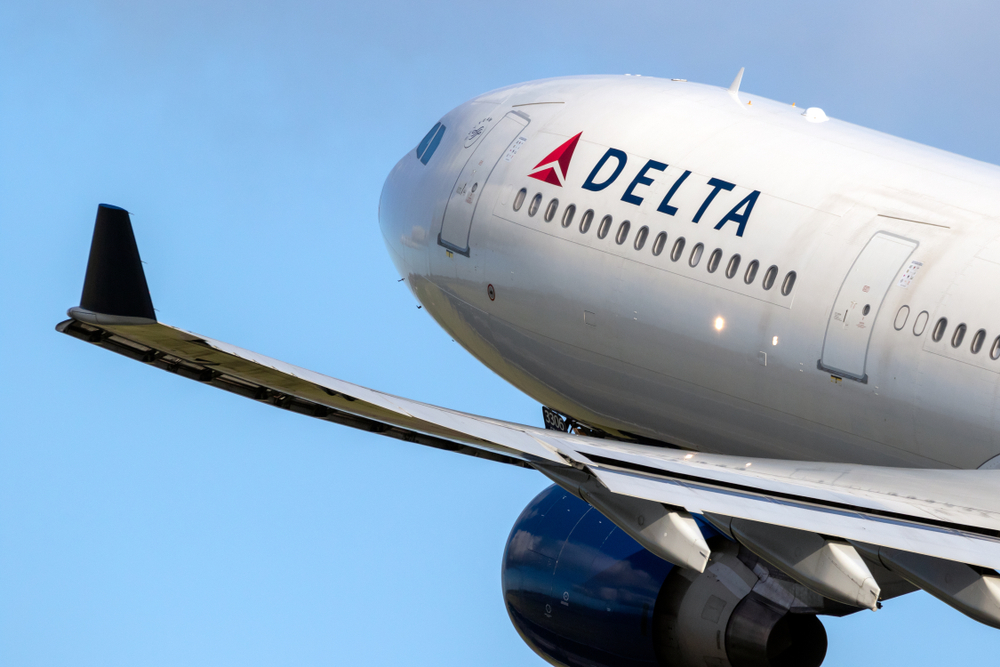
Delta Airlines (Photo: VanderWolf Images)
Delta has been leading the charge for cleanliness and sanitation protocols. While this may lead to more expensive ticket prices than other airlines, it also assures passengers that Delta may be their safest option when traveling.
Safety Measures in Place:
~ Blocking middle seats and capping seating capacity in their aircraft (50% capacity for First Class, 60% capacity for Main Cabin) – Policy in place until at least October
~ No change fees for flights booked before July 31
~ Masks are required for both crew and passengers
~ Plexiglas barriers at all counters
~ Line markers to ensure guests are distancing themselves
~ Surfaces at check-in and at the gate are sanitized regularly
~ Hand sanitizer stations throughout terminal
~ Each plane is sprayed with electrostatic sanitation before each flight
~ Gate area and jet bridge are cleaned with electrostatic sanitation daily
~ high-touch points sanitized again by hand after spraying
~ meal service replaced with snack bag, complete with water, snacks, and hand sanitizer
~ Airplanes have their filters replaced twice as often
What’s Missing:
As far as airlines go, Delta is pretty much the pinnacle of what other carriers should be striving for.
I flew with Delta in late June. I was pleasantly surprised to see everyone in masks, seating spaced apart, cabin crew wearing gloves while passing out the snack packs, and most importantly, the complete cooperation from passengers. I think that since the airline has made such clear and definitive rules, Delta has attracted passengers who want to fly in a safe and comfortable space, and therefore, want to comply with safety measures. ~ Keith Langston
FRONTIER

Frontier Airlines (Photo: Philip Pilosian)
Despite becoming a no-frills budget airline a few years ago, the Denver-based airline, Frontier, has created a sturdy foundation for cleanliness and customer safety.
Safety Measures in Place:
~ Daily spraying with a disinfectant
~ Bathrooms onboard now have antibacterial soap
~ Passengers and crew required to have face coverings at check-in, gate areas, and onboard (their website even has instructions on how to make your own face mask)
~ temperature screenings for all passengers and crew. Anyone with a temp above 100.4 F will be denied boarding
What’s Missing:
While all the measures Frontier is taking are great, the airline needs to limit seating inside the aircraft to help keep passengers spread out. HEPA filters inside planes are great at cleaning the air, but if the person directly next to you coughs, the HEPA filters won’t help. When you’re directly next to the source, there’s too many droplets in the air at too close of proximity without enough time for the circulating air to pull them away from you. HEPA filters are extremely useful, just not when you’re sitting next to the person coughing.
JETBLUE
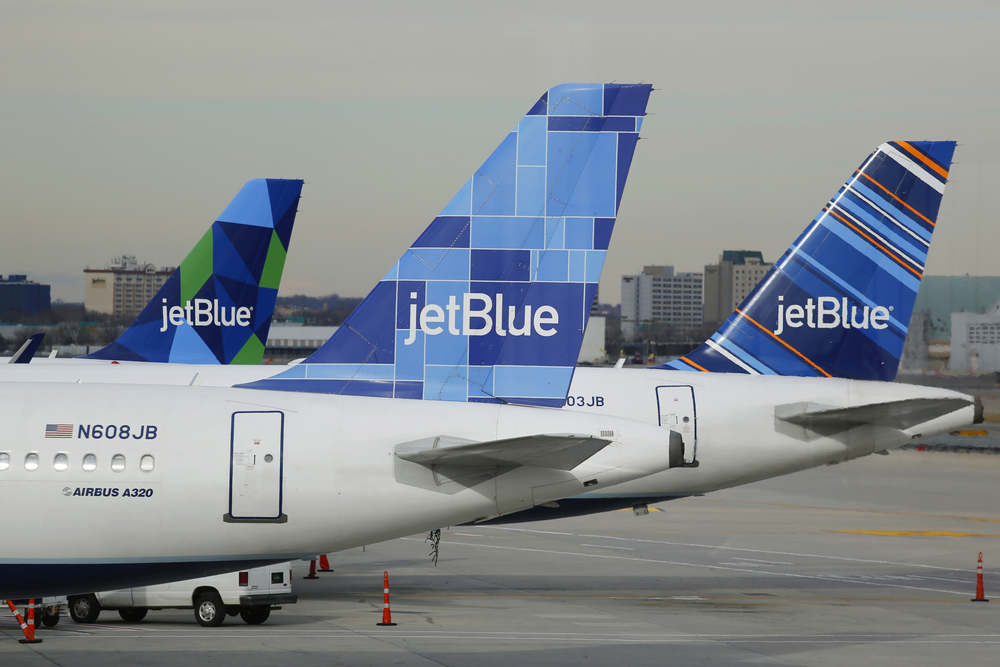
JetBlue (Photo: Leonard Zhukovsky)
JetBlue was one of the first airlines to require all passengers to wear face masks back in early May and has since continued its commitment to keeping passengers safe. The airline is on par with Delta as having the move robust passenger safety measures of all the US carriers.
Safety Measures in Place:
~ Temperature checks for all crew members
~ Face coverings required for passengers and crew members at check-in, boarding, and in-flight
~ Kiosks and counters disinfected regularly
~ Hand sanitizer located throughout the terminal
~ Hospital-grade sanitization performed nightly, as well as a nightly electrostatic spraying
~ blocking off middle seats in A320s and A321s, blocking off aisle seats in Embraer 190s (until at least July 31)
~ Limited food and drink service
~ No change fees until July 31
What’s Missing:
~ With July 31 rapidly approaching and COVID-19 cases spiking all across the country, JetBlue would be wise to continue its passenger spacing policy well beyond the end of July. Not only will it create for a safer plane ride for passengers, but it will also help reassure customers that JetBlue is committed to safety, especially since JetBlue’s hubs are in some of America’s hardest-hit regions like New York City and South Florida.
SOUTHWEST
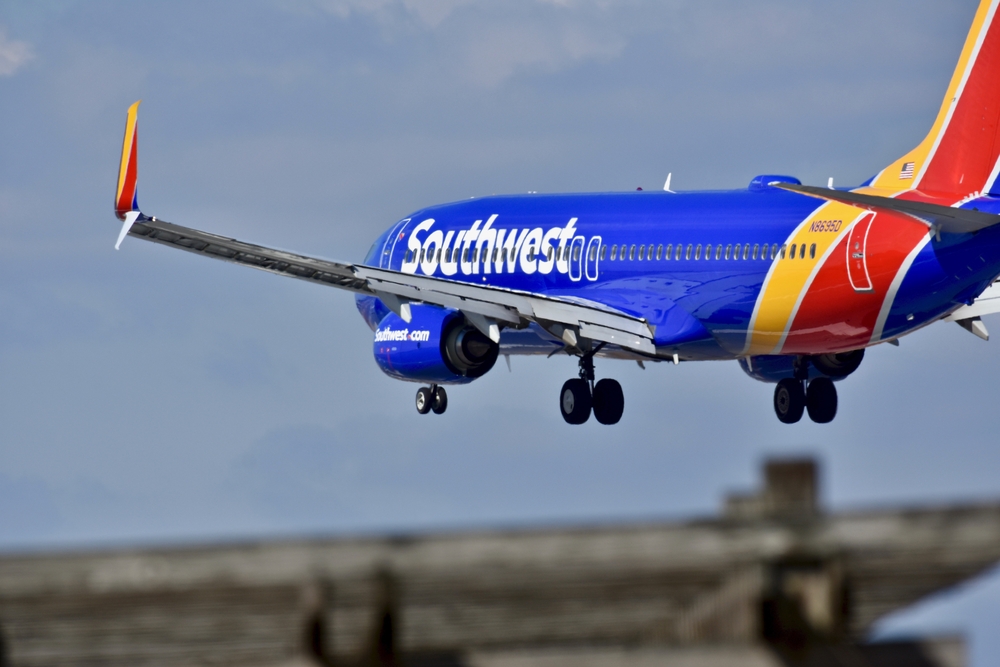
Southwest (Photo: Jeramey Lende)
Southwest, America’s most well-known low-budget, no-frills airline has enacted many of the safety protocols adopted by other airlines.
Safety Measures in Place:
~ Overnight plane cleaning with hospital-grade disinfectant
~ Ticket counters and boarding gates disinfected regularly
~ Plexiglas separating staff from passengers
~ Blocked out middle seats on flights through September 30
~ Face masks required onboard for both passengers and crew (and they’re even providing masks to passengers who don’t have their own)
~ High-touch surfaces cleaned before each flight
For a low-budget airline, Southwest has all the major factors checked off: spacing passengers, requiring face masks, and sanitizing planes.
Spirit
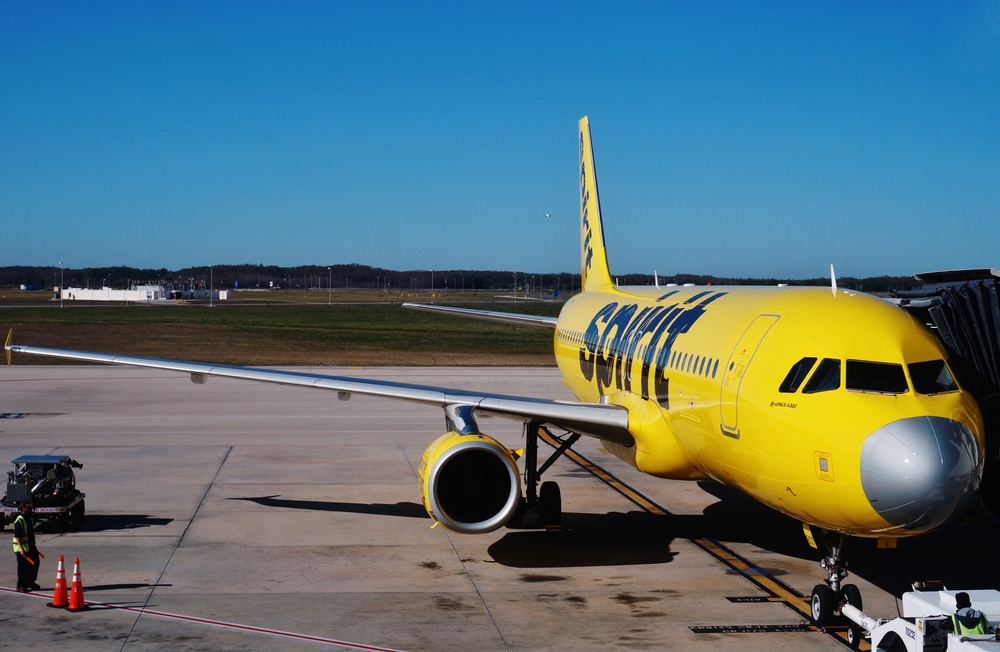
Spirit Airlines (Photo: EQRoy)
Spirit is one of the nation’s most controversial airlines, offering dirt-cheap ticket prices, but then gouging customers with added fees like checked bags, carry-ons, in-flight food and drink, and even a fee for not booking online. They’re also one of the airlines doing the least for passenger and crew safety.
Safety Measure’s in Place:
~ Electrostatic spraying and wiping down high-touch points (but how often isn’t mentioned)
~ Passengers and crew required to have face coverings while onboard
~ line markers for social distancing
~ disinfecting check-in and gate desks
~ no change fees until July 31
What’s Missing:
~ A lot. Spirit is still flying full planes and isn’t transparent on how often their aircraft undergo cleaning. The best way to keep our economy open and to keep the travel industry from shutting down again is to keep the virus from spreading. Airports and airplanes are hotspots for virus transmission, so Spirit needs to focus on more cleaning, providing sanitizer to passengers, and capping the number of seats sold on their planes.
United
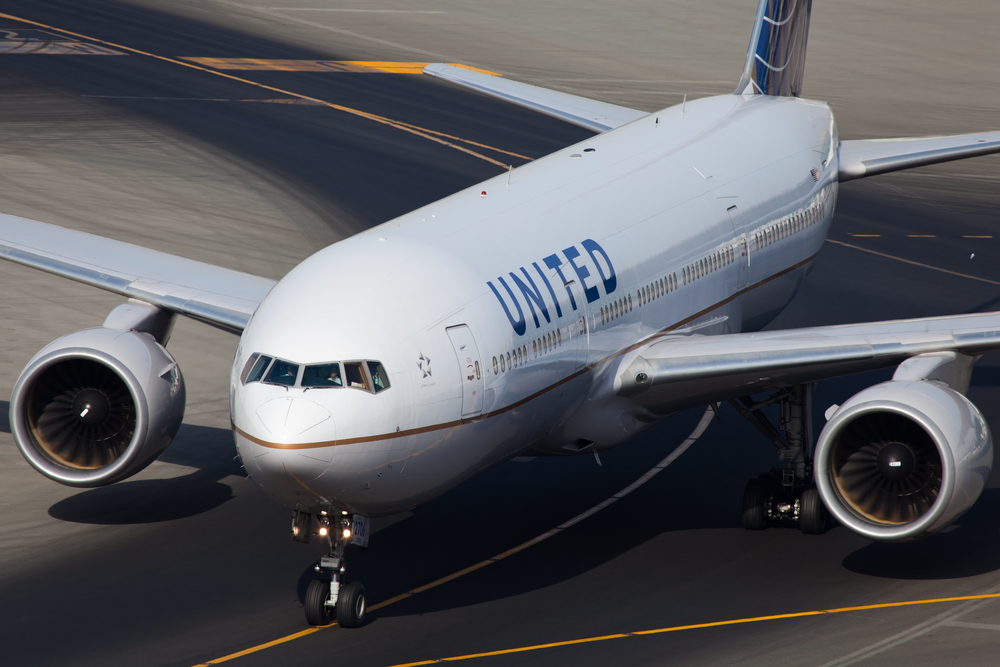
United Airlines (Photo: Mehdi Photos)
United has also seen its fair share of controversy over the last few years. After dragging a man off a plane and denying boarding because of people’s outfits, the airline has developed a reputation for being one of the worst for customer service. That reputation seems to have carried over to their COVID-19 policies, seeing as their website is out of date and I had to contact United to get any answers.
Safety Measures in Place:
~ Line markers for social distancing
~ electrostatic spraying before each departure (This information was outdated on their website)
~ disinfecting high-touch points
~ Crew and passengers required to wear face masks
~ hand sanitizer passed out to each passenger
~ no change fees until July 31
~ Asking customers at check-in if they have any COVID-19 symptoms
~ No cap on seating, but United will notify passengers 24 hrs in advance about whether their plane is full, and passengers can ask for a new flight if theirs makes them uncomfortable (This information was outdated on their website)
What’s Missing:
~ First off, an updated website. Going online and reading something that says “Starting this week and going until June 30…” doesn’t make me feel like the website is accurate or that the airline cares about customers, considering that June 30 has already passed.
~ Allowing a passenger to change their flight sounds ok in theory, but when you’re 24 hrs away from departure, your bags are packed, your hotel is booked, and you’ve already put the dog in a kennel…how likely are you to actually say, “No, I won’t go now…” It just doesn’t work in practice. United should cap capacity on their planes to ensure the safety of both their passengers and crew.
“I flew United the 4th of July weekend from New Jersey to Cleveland. My flight to Cleveland seemed fine and was probably only 1/4 full. However, on the flight back, the gate agent wasn’t wearing a mask, and in the plane, passengers were moved around by the cabin crew, and a whole family got placed in the row in front of me. None of them were wearing masks, and the flight attendants never told them to put one on. It definitely made me reconsider flying United for a while…” ~ Travel Industry Professional who has recovered from Covid-19
*** Without any federal regulation, each airline is free to do whatever they want, and change policies whenever they want. That means that the information is constantly fluctuating. The best advice to find the most accurate information is to make sure you visit the airline’s website and call their customer support number before booking your flight.


